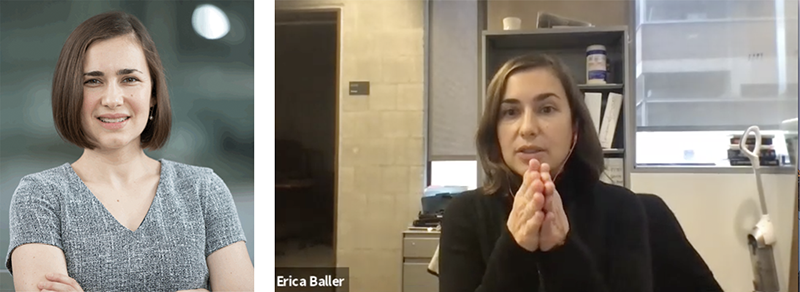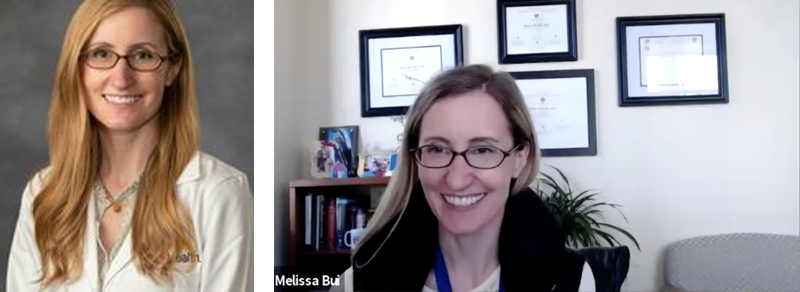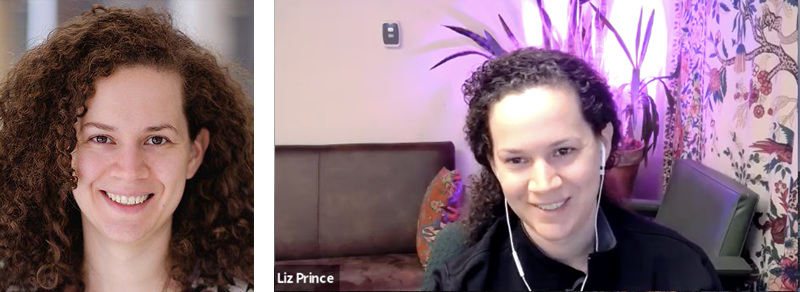This year’s award winners are:
Erica Baller, MD, MS, University of Pennsylvania

“My long-term goal career goals involve leveraging diverse imaging modalities and neuroinformatics to elucidate mechanisms underlying neurobehavioral phenotypes in the medically and psychiatrically ill,” says Dr. Baller. “My previous research and clinical subspecialty training highlight my experience studying the intersection of Medicine and Psychiatry using novel informatics techniques and show my commitment to pursuing a career as an independent investigator bridging the research and clinical divide.”
In her current research, Dr. Baller is evaluating the relationship between brain structure and depression in patients with multiple sclerosis. “A challenge in doing this work is finding mentors who have experience in studying neuropsychiatric syndromes from a rigorous research perspective,” she says. “I have phenomenal in-house mentors who specialize in psychiatry, neurology, diffusion weighted imaging, image analysis, and neuroinformatics, but currently I am the only consult-psychiatrist with an imaging background in this space at Penn.
“I am seeking mentorship in the nuances of how to do this kind of research, both methodologically as well as how to obtain funding. Given Dr. Arciniegas’ extensive experience and success in this exact domain, I am overjoyed to formalize a mentorship relationship with him.”
Melissa Bui, MD, Virginia Commonwealth University Health System

“Clinical research is one of my greatest passions—and also one of my greatest challenges,” says Dr. Bui. “During my early career I have demonstrated the ability to establish an interdisciplinary research team, formulate a clinical research question, make a commitment to seeing it through, and to publish my findings. However, the formal requirements of research remain a significant barrier to my future success, as I continue to struggle with finding my footing in such a rigorous area within clinical medicine.”
Dr. Bui’s particular interests center around neuropsychiatric issues among critically ill patients, and using proactive models of psychiatric consultation to provide early, tailored recommendations to not only assist with the psychiatric management of these patients, but also to support the medical team caring for a sometimes challenging population.
Currently, she is working to implement such a model of proactive psychiatric consultation in Virginia Commonwealth University’s Medical Respiratory Intensive Care Unit, and collaborating with a rehab facility, the Sheltering Arms Institute, using innovation and technology to optimize the long road to recovery for patients with brain injuries and chronic critical illness.
“Learning from Dr. Arciniegas is an opportunity to transform the trajectory of my early career, and permit me to pursue a much higher caliber of work than what I could do on my own.”
Elizabeth Prince, DO, Johns Hopkins School of Medicine

Dr. Prince says she will benefit from Dr. Arciniegas’ mentorship in studying the neuropsychiatric sequelae of Sickle Cell Disease. More research is needed to understand the neurocognitive effects of the disease, she says, especially in adults, and how acute events like stroke, and chronic insults like anemia, contribute.
Dr. Prince’s current institutional mentoring in sickle cell psychiatry is primarily focused on pain and opioids. “It would be helpful to have additional guidance on how to think about brain injury and neurocognitive disorders in sickle cell disease,” she says.
“I also need academic mentorship on design and execution of clinical research. Dr. Arciniegas’ expertise in neuropsychiatric sequelae of brain injury and extensive academic experience will be a valuable resource for me at this early stage of my career.”
Thank you to 82 Mentors in 2020-21 Program
ACLP president Philip Bialer, MD, FACLP, has congratulated the 82 mentors in the Academy’s 2020-21 program: “Your participation in this program is vital to our mentees’ success and the future generation of C-L psychiatrists. With your collective volunteering, this program enabled nearly 100 trainees to participate and deepen their involvement and expertise in C-L Psychiatry.”
See more of his letter and the list of mentors here.